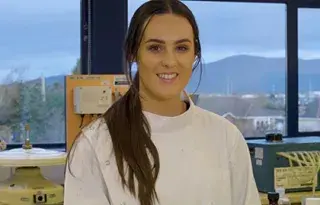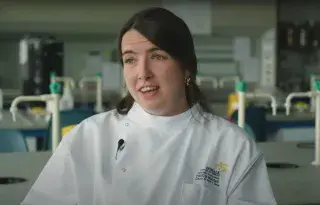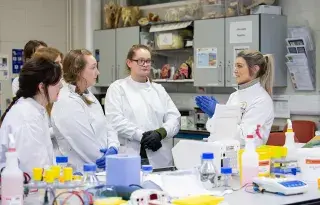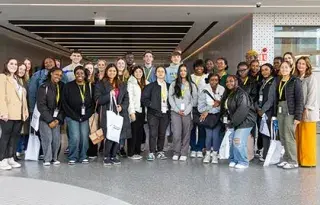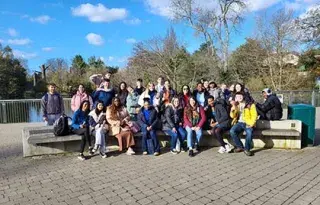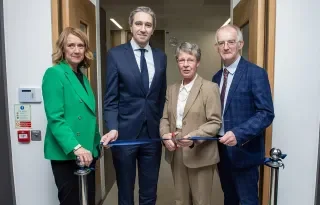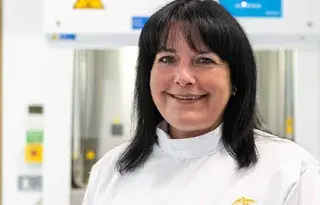BSc (Hons) in Science (Common Entry)
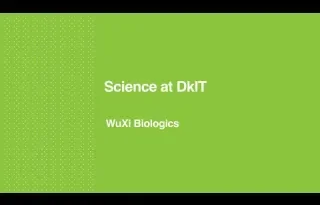
Search to find a different course
Course Overview
This course gives students the opportunity to study common science topics for the first 2 years before specialising in an Award option stream in Years 3 and 4; Biopharmaceutical Science or Environmental Bioscience (Subject to student numbers).
Environmental Bioscience: Environmental Bioscience investigates the natural world and how things work and addresses the ongoing problems relating to environmental and climatic degradation.
Biopharmaceutical Science: Biopharmaceutical Science focuses on how to develop, analyse and produce new drugs while developing an understanding of the principal scientific challenges in the manufacturing of biopharmaceutical products.
What makes this course different
Industry Training
Students choosing the Biopharmaceutical Science Award will be able to participate in training at the National Institute for Bioprocessing and Training (NIBRT).
Great Career Prospects
Ireland is home to 24 of the world’s top biotechnology and pharmaceutical companies - including the top 10 companies in the world.
Understanding the Industry
Scientists are extremely important to modern society as they investigate the challenges and possibilities of the natural and technological world, from drug discovery and public health to environmental concerns. Biopharmaceutical science is the study of how biological molecules can be designed, manufactured, and used as medicines. Environmental Bioscience investigates the biggest challenges faced by people and the planet: fighting diseases, protecting the environment, feeding a growing population, and water conservation.
Career Opportunities
Future Careers:
- Teaching
- Technical consultancy
- Industrial research
- Quality Management
- Biopharmaceutical Science
- Analytical Chemistry
- Medical laboratory science
- Resource Management and Environmental Advocacy
- Science administration or management
Graduates work at

Course Delivery and Modules
The Science course is delivered through a mixture of lectures, practicals and tutorials. Practicals include laboratory work. This programme contains a high level of hands-on experience at every level.
Students choosing the Biopharmaceutical Science Award will be able to participate in training at the National Institute for Bioprocessing and Training (NIBRT). This training involves the practical experience of the bioprocessing pilot plant at NIBRT in both semesters of Year 4 of the Biopharmaceutical Science Award stream.
- Fundamental Chemistry
- Mathematics
- Physics Through PBL (Problem-Based Learning)
- Health and Safety and Academic Skills
- Biology
- Chemistry
- Introduction to Organic Chemistry
- Microbiology
- Analytical Science
- Biochemistry
- Pharmaceutical and Biopharmaceutical Science
- Emerging Issues of Environmental Concern
- Statistics and Data Analysis
- Molecular Biology
- Regulatory Affairs and GMP Compliance
- Pharmaceutical Manufacturing
- Immunology
- Pharmaceutical Biotechnology
- Pharmacopoeial Characterisation
- Quality Management
- Bioanalytical Science
- Physiology & Pharmacology
Electives:
- Pharmaceutical Drug Design
- Biopharmaceutical Therapeutics
- Environmental Communication and Critique
- Plant Science
- Aquatic Sciences
- Environmental Chemistry
- Microbial Ecology
- Environmental Biotechnology (Habitat and Wildlife)
- Ecology
- Project Planning and Design
Electives:
- Work Placement
- Quality Management
- Biopharmaceutical Processing (Upstream)
- Biomolecular Therapeutics and Bioinformatics
- Ethical Project Design and Statistics
- Biopharmaceutical Research Project
- Biopharmaceutical Processing (Downstream)
- Recombinant Drug Manufacturing & Engineering
- Biopharmaceutical Analysis
- Data Handling and Modelling
- Ecotoxicology
- Ethical Project Design and Statistics
- Environmental Bioscience Project 1
- Environmental Risk Assessment
- Environmental Monitoring and GIS
- Advanced Environmental Biotechnology
- Conservation Genetics
- Soil and Water Management
- Environmental Bioscience Project 2
Work placement
For students who chose the Environmental Bioscience Award stream, there will be a work placement opportunity between Years 3 & 4 over the summer period.
Education Progression
Graduates can progress to Level 9 and 10 Postgraduate degree courses.
Fees and Funding
Please find information on fees and funding here: www.dkit.ie/fees
Entry requirements
Standard entry requirements apply. There are no special entry requirements for this course.
- Standard Requirements for Leaving Certificate Applicants
- Standard Requirements for UK/NI Applicants
- Standard Requirements for QQI-Further Education Applicants
- Mature Applicants: Minimum of 23 years of age on January 1st of year of application.
- International Applicants: International students must have a minimum level of English equivalent to IELTS 6.0 A Leaving Certificate or A-level science subject is not required but is recommended.
Recent CAO points
How to apply
Apply on CAO
All standard entry first-year applicants must apply for entry through the CAO. See Important application dates for CAO and information for specific applicant types below:
Advanced Entry & Transfer Applications
Advanced Entry is for applicants who have previous educational achievements and/or work experience and want to be considered for direct entry into year 2, 3, or 4 of a course. This includes students looking to transfer to DkIT from another Higher Education provider.
International Application (non-EU)
International Applicants (not from or living in the EU) can apply through an agent or directly to DkIT to study this course.
Ask us a Question
If you have a question about the BSc (Hons) in Science (Common Entry) please ask it below and we will get back to you.
Dr Sergio Moreira
Course News
View all NewsDisclaimer: All module titles are subject to change and for indicative purposes only. All courses are delivered subject to demand and timetables are subject to change. Elective Module options will only run subject to student numbers. The relevant Department will determine the viability of each elective module option proceeding depending on the number of students who choose that option. Students will be offered alternative elective modules on their programme should their preferred elective option not be proceeding. Award Options for Common Entry Programmes: The relevant Department will determine the viability of each award option proceeding depending on the number of students who choose either option. If the numbers for one of the Award options exceed available places, students for this option will be selected based on Academic Merit (highest grades).
